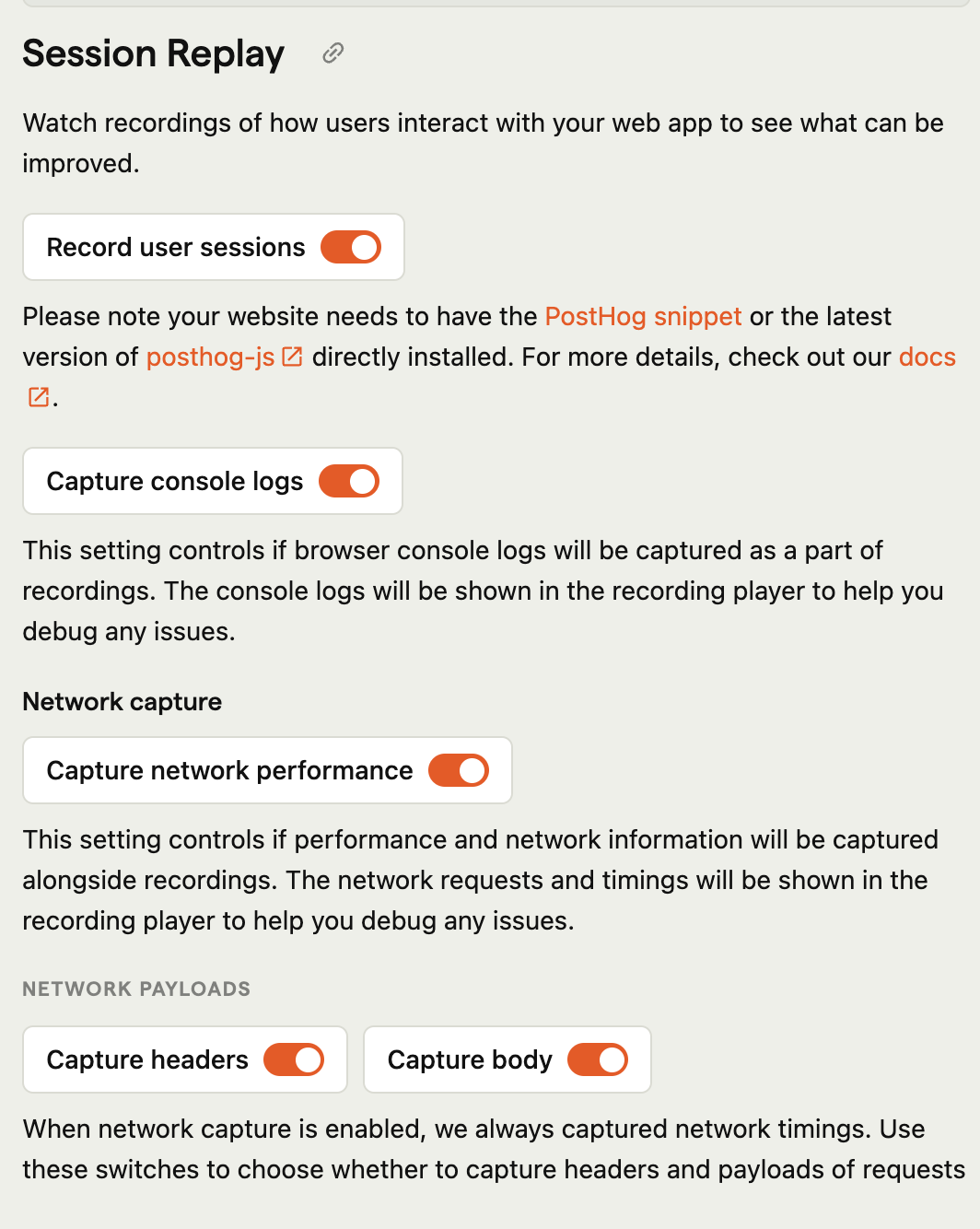PostHog can capture network requests that occur during the browser session, so you can see if your application is sending the expected requests and response, and check the effect of slow network requests or errors on the user experience.
You can enable network recording from your project settings:

When enabled PostHog always captures:
- the network request URL,
- performance information about the request,
When request capture is enabled you can also enabled payload and body capture, this includes:
- the request method
- the response code
- request & response headers (if enabled)
- request & response body (if enabled)
Sensitive information
We have a deny-list of headers that we will never capture.
- authorization
- x-forwarded-for
- authorization
- cookie
- set-cookie
- x-api-key
- x-real-ip
- remote-addr
- forwarded
- proxy-authorization
- x-csrf-token
- x-csrftoken
- x-xsrf-token
But you can also register a callback to inspect and redact each network request, like so:
Troubleshooting
Recording from localhost
Due the very high volume of network requests that some tools can make (for example when running hot-reload during development) PostHog does not capture network requests when running on localhost
Requests early in the page lifecycle don't capture all information
PostHog has to wrap fetch and xhr in order to capture network requests. If your application makes network requests before PostHog has had a chance to wrap them, then PostHog will not capture all information about the request.
PostHog truncated the request or response body
In order to maintain service levels we truncate all request and response bodies at 1MB
I want to query the network performance data I capture
We'd love that too! It's not possible right now but watch this space.